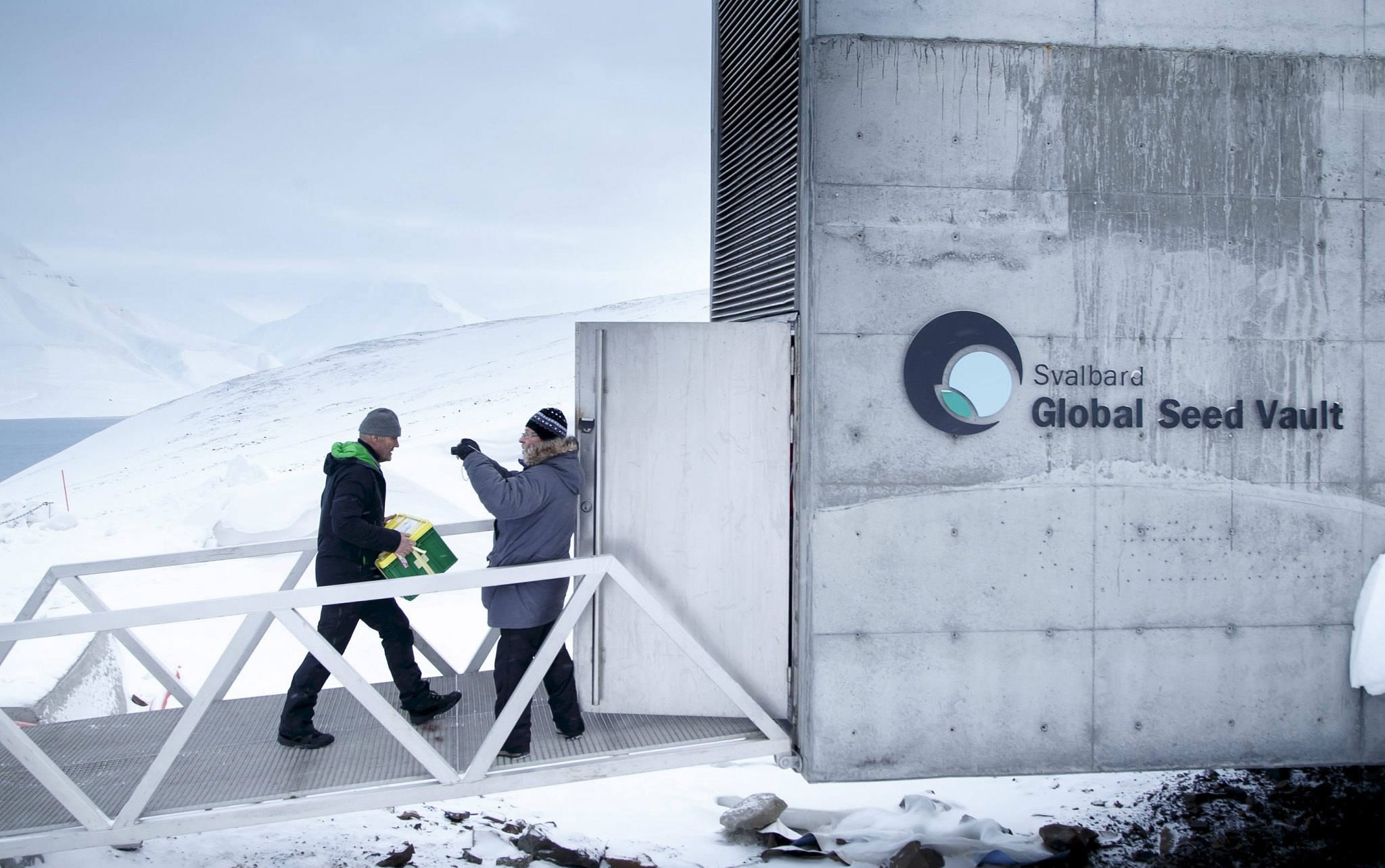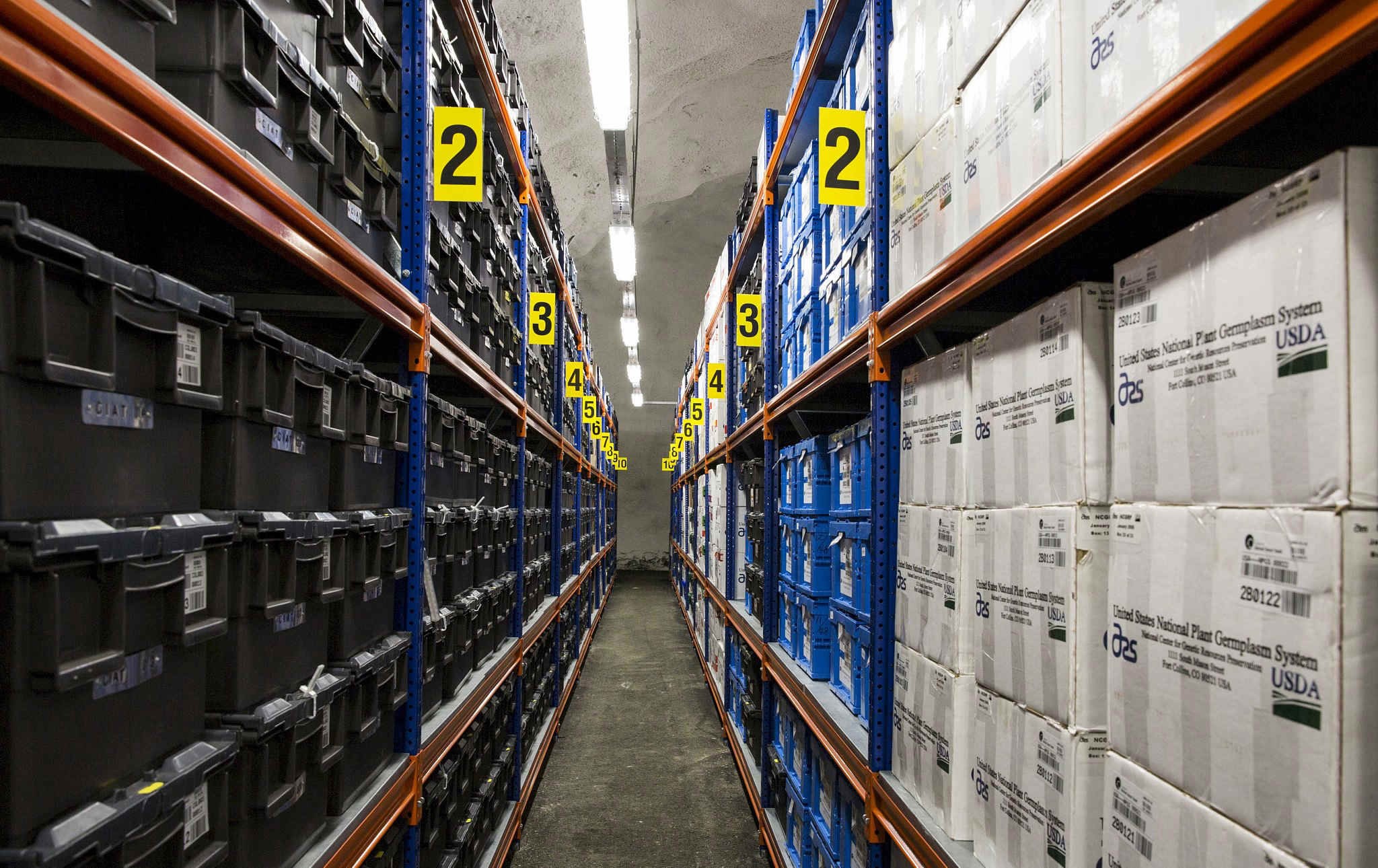
Nature
11:46, 27-Feb-2018
'Noah's Ark' seed vault chalks up a million crop varieties

Norway's 'doomsday' seed bank, which seeks to protect the world's crops from natural disasters, on Monday said it had gathered more than a million varieties as it marked its 10-year anniversary.
Dubbed the "Noah's Ark" of food crops, the Global Seed Vault is located deep inside a mountain on Svalbard, a remote Arctic island in a Norwegian archipelago and has the capacity to store up to 4.5 billion seeds.
Launched in 2008, the Svalbard vault was on Monday marking its 10th anniversary by taking shipments of more than 76,000 seed samples, with depositors from all over the world delivering crops such as black-eyed peas, the Bambara groundnut and the Estonian onion potato.

File: One of the newly arrived boxes containing seeds from Japan and the US is carried into the international gene bank Svalbard Global Seed Vault (SGSV) outside Longyearbyen on Spitsbergen, Norway, March 1, 2016. /VCG Photo
File: One of the newly arrived boxes containing seeds from Japan and the US is carried into the international gene bank Svalbard Global Seed Vault (SGSV) outside Longyearbyen on Spitsbergen, Norway, March 1, 2016. /VCG Photo
Although housed in Norway, the seeds belong to the donor states and institutions and they can withdraw them at their convenience.
The delivery raises the overall number of unique crop varieties deposited in the so-called "doomsday vault" to 1,059,646 since it opened on Feb. 26, 2008 with the aim of providing a "fail-safe seed storage facility, built to stand the test of time and the challenge of natural or man-made disasters."
"I am extremely happy to announce that more than one million seeds will pass through this door to be secured forever," said Norway's Agriculture Minister Jon Georg Dale.

Seeds are stored on shelves at the international gene bank Svalbard Global Seed Vault (SGSV) near Longyearbyen on Spitsbergen, Norway, in this Oct. 20, 2015. /VCG Photo
Seeds are stored on shelves at the international gene bank Svalbard Global Seed Vault (SGSV) near Longyearbyen on Spitsbergen, Norway, in this Oct. 20, 2015. /VCG Photo
The vault currently has 967,216 varieties as some Syrian grains were withdrawn with the aim of re-introducing local strains after the fighting in Aleppo ended.
There are 1,700 gene banks around the world that safeguard collections of food crops and many of these are exposed to natural disasters and wars, according to the independent Global Crop Diversity Trust.
Located 1,000 kilometers (620 miles) from the North Pole, the Svalbard archipelago, which is twice the size of Belgium, counts 2,300 inhabitants and is considered the ideal place for the vault due to its remoteness, far from civil strife.
5927km
Source(s): AFP

SITEMAP
Copyright © 2018 CGTN. Beijing ICP prepared NO.16065310-3
Copyright © 2018 CGTN. Beijing ICP prepared NO.16065310-3